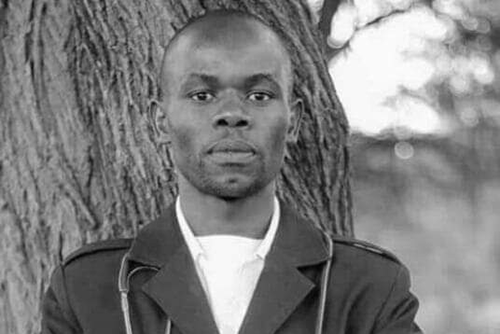Do we have a proper healthcare system in Namibia? This letter attempts to diagnose and prescribe possible solutions to our healthcare system.
There are many good things that Namibia is doing well as far as health is concerned. These notable achievements make Namibia a role model nation. To date, the ratio of communicable diseases and non-communicable diseases is 50:50 (in HIV/AIDS prevention of mother-to-child transmission). We are even better than South Africa, which is the largest economy on the African continent.
Last year, Global Fund vice president Bience Gawanas, acknowledged Namibia’s progress in HIV/AIDS, but stressed the need for sustained efforts to achieve the goal of ending AIDS.
We must continue to walk the talk and make meaningful investments to end AIDS by 2030.In Namibia, we have achieved our targets largely because of our partners. Since 2004, the Global Fund has disbursed about US$7.5 billion to Namibia. The United States President’s Emergency Plan for AIDS Relief to date has invested about US$840 million in providing health and social services to vulnerable children, adolescents and youths. I would like to thank the Ministry of Health and Social Services, as the custodian of all health-related issues in Namibia, because they place a very high priority on optimum management of all patients presenting at health facilities. The challenges we face, just to mention a few: malaria, cancer, malnutrition, diabetes, and HIV/AIDS are still alive and well.
As a qualified nurse from the government training centre – Otjiwarongo Regional Health Training Centre – I will state boldly that it cannot be right that only 15% of our citizens seek medical healthcare at private health facilities, while the majority – the poor – seek healthcare at dilapidated, overcrowded public health facilities. Moreover, it cannot be right that Namibia, after 34 years of independence, has only two mental health facilities. I cannot celebrate this. In fact, I am more worried, looking at the statistics of mental health conditions in our country.
The other problem we have is the issue of unemployed nurses in Namibia. There are a lot of qualified nurses without jobs, yet some clinics reportedly have shortages of nurses, and sometimes, unqualified people like cleaners and security guards are seen assisting in taking the vital data from patients. This is very bad.
In November 2023, I went for an interview at the Onandjokwe Intermediate Hospital and we were 530 unemployed nurses competing like bulls in Omaheke for only six positions. The MoHSS, should know that this is the vandalisation of our Namibian Constitution. This issue of unemployed nurses in the country, while hospitals have shortages of nurses, is unacceptable. This is a pressing issue that demands urgent attention.
Allow me also to state boldly and clearly that there are 30 articles under the Human Rights Declaration, Article 3 that state that; ‘everyone has – from birth to death – the right to life’. So, fellow Namibians, health is a fundamental human right, not a commercial commodity to be accorded to those who can afford it.
Therefore, it should be noted that waiting for our patients to come to health facilities and start pumping them with medicines is not the proper and correct way of dealing with the problem. We need to prevent diseases more and primary healthcare (PHC) centres should start pulling up their socks.
I have been indicating that with the salary of one medical doctor, we can employ more than 13 community health care workers; not that the community care workers are not important but because our government can easily afford to pay them.
I, therefore, submit to the ministry of health to recruit more community health workers, and to take the health services to the rural areas. We need more community health workers than doctors so that communities will be given health education, and thus fewer cases will occur and be referred to clinics and referral hospitals. The time is also up for Namibia to establish mental health facilities in regions that will create a supportive environment, educating people about mental health.
Two mental health facilities are not enough for our population. PHC should implement the programme called Expanded Programme on Immunisation (EPI) support officers, within the ministry’s structures. That is the backbone of primary health care. Namibia should also establish more Be Free Clinics in its regions that will offer accessible and holistic sexual reproductive health services in an environment that values young people.
Last, but not least, I call for a health conference in 2024 where wide consultations with all the stakeholders and interested patients in both the public and private sectors will sit around the fire to ensure and strengthen collective ownership, taking into account the considerable changes in policies, disease profile and clinical practice.
A health conference will be the antidote to all the problems facing our healthcare system. As a young person of 27 years and unemployed, I see great potential in our health sector.
*Alfeus Hamundja is an unemployed nurse. His cellphone number is 0818168985.


